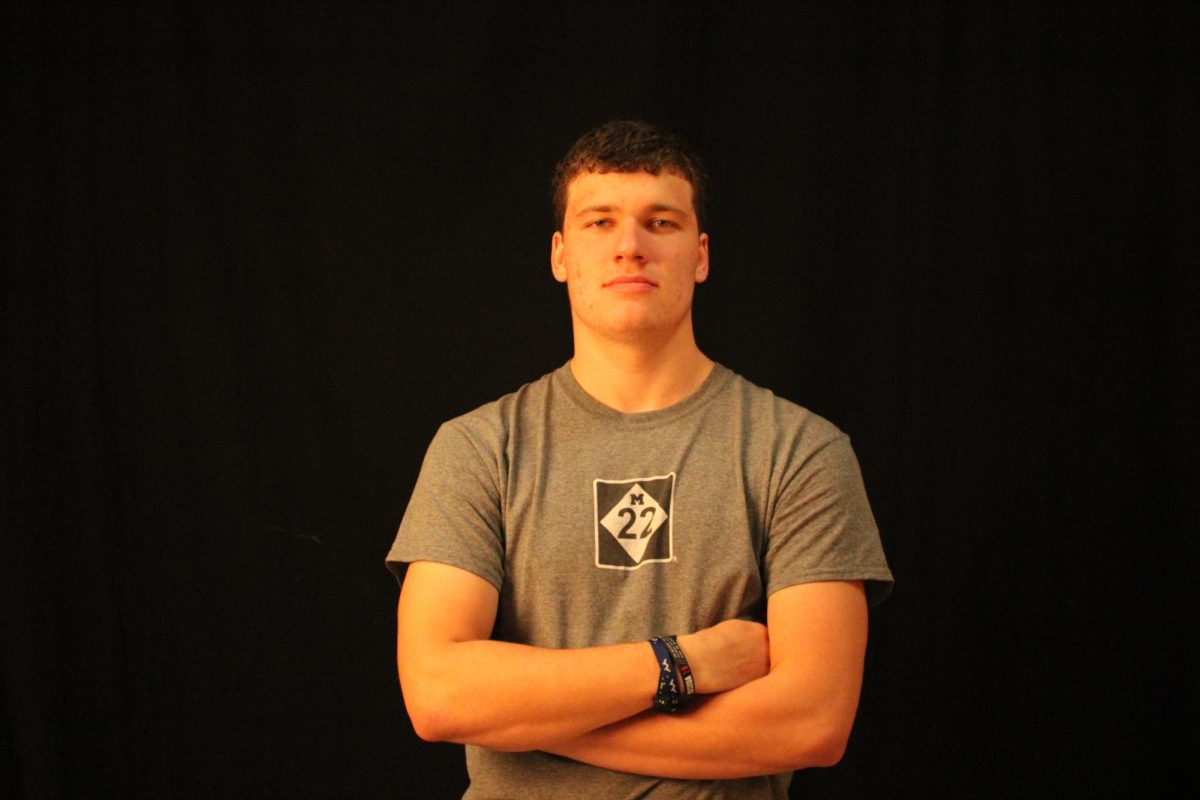While there is an overwhelming stereotype that Gen Z is predominantly liberal, according to research at PRRI, nearly one third of teens that identify with a major political party consider themselves conservative or right-leaning. As the nation continues to grow more polarized, a silent but growing number of young Americans are choosing to align themselves with the Republican Party. Driven by traditional values and the occasional desire to stand apart from the majority, young conservatives at KHS voice their opinions and stand true to their beliefs.
Harry Bogatko, senior, said the 2020 election sparked his interest in politics. Bogatko said he came to his own conclusion after discussions with his family that he felt former President Trump was best for the country, and that’s when he decided to align with Republican ideals.
Bogatko said. “I feel like you’ve got to stick with God, and some modern Republicans [don’t] think that way.”
Bogatko said some modern Republicans don’t incorporate religious values into their beliefs, as opposed to members of the party that have a more traditional approach, and a lot of his views on social and cultural issues are rooted in Christianity. Bogatko then said America is undergoing a shift to a stronger federal government, and there is not enough power being placed upon the states. He believes currently there is too much government involvement, and there should be less association in everyday life.
“I believe that the Republican party [will] start to give more power back to the states, but I don’t think Trump will be able to do it on his own,” Bogatko said. “He’d be the best candidate to do [delegate powers], but [it’s something] that will take more than four years [as president to accomplish].”
Bogatko said we’re in need of a stronger economy, and it’s crucial that the United States upholds national ideals, and promotes values, traditions, products and practices that are associated with America. He said he believes more local jobs and tariffs are important for our economy.
“We need to reopen the Keystone pipeline and put out more tariffs to help put that money back into the [American] economy,” Bogatko said.
He voiced how he is an advocate for stronger borders and stricter immigration policies in order to regulate some of the misconduct that comes with cross-border movements, because he often leans toward an America First approach. Bogatko then said he believes the most important economic policy for young people to recognize is the damaging potential for cheaper college costs across the nation.
“I don’t think that everyone should get free college [because] people work hard in high school for good grades [and] scholarships, and if college is free, it takes away from [the already declining] work ethic [in this generation],” Bogatko said. “It would be unfair for [older] generations, [and] when college [has more value], it’s a good start to help people monitor and choose what they’re going to do.”
Bogatko doesn’t agree with the media’s negative portrayal of Republicans, and said it’s unfair for young Republicans to be scared to speak up in this day and age. He said that this inability to speak up is rooted in the fear of being canceled by society.
“Everyone thinks Republicans are rednecks, and I feel like a lot of [them] have unfair pressure on them,” Bogatko said. “They feel quieted by society [and] get looked down on, people have a prejudice against them.”
Lisa Shinabargar, social studies teacher, said in her experience at KHS, young people have been more likely to identify as Democrats. She said she believes it can occasionally be hard for young Republicans at KHS to navigate the slight imbalance of opinions.
Shinabargar said. “I think that’s not always the best way to look at each other.”
She explained that the young Republicans in her classes that are voicing their opinions, tend to be the smaller number of people, but the louder voices in the class.
“[It could be] in a way to spread their views [because] they feel like everybody has different [ones] and they need to defend [their own] side,” Shinabargar said.
Bogatko said that in school he has to avoid saying some of the things he wants to because it can be hard to deal with all of the backlash. He also said there’s been a few times where he’s felt the need to leave things out of discussions or papers in school, and that he hasn’t always been able to speak what’s on his mind.
“What’s wrong with politics [is that] people won’t give the other side an opportunity. You don’t have to agree with the other side, but you can just listen to them and share opinions,” Bogatko said. “Everyone takes things very strictly and they’re confined to their own views. I [have learned] to [politely] disagree while also sharing my opinion.”









